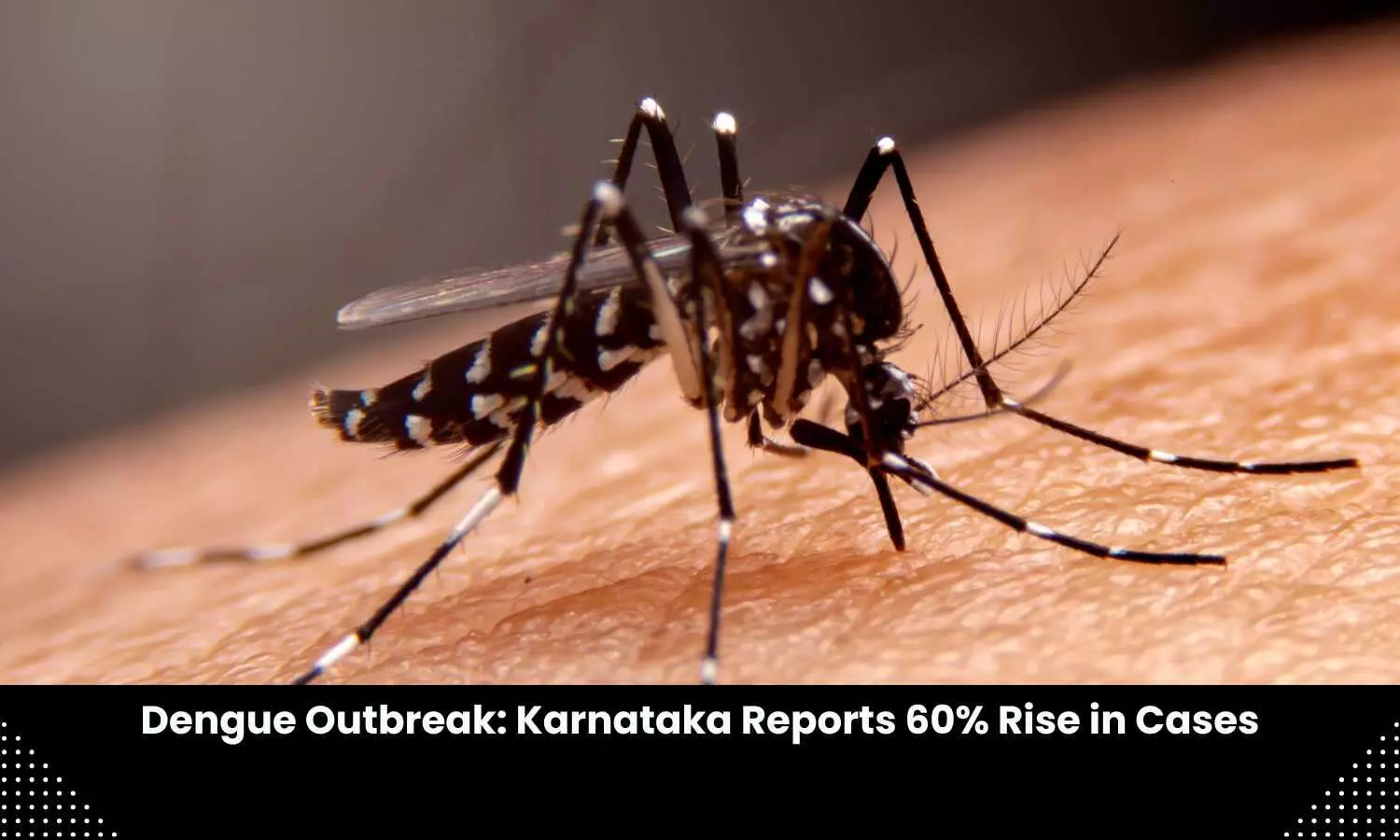Dengue Outbreak: Karnataka Reports 60% Rise in Cases

The Karnataka Health Department has reported a significant increase in dengue cases, with nearly a 60% rise in the first half of this year compared to the same period in 2023. Cases have surged from 2,003 by June 2023 to 4,886 this year. Within the Bruhat Bengaluru Mahanagara Palike (BBMP) limits, 1,230 cases were recorded, along with 30 cases in the Bengaluru Rural and Urban districts.
Health Commissioner Randeep D emphasized the department's efforts to improve surveillance by deploying health staff to towns bi-monthly to reduce infection rates and educate the public. The increase in dengue cases is attributed to several factors. A prolonged dry spell led to water shortages, prompting increased water storage, which has intensified mosquito breeding. Community resistance to larvicide application in stored water and intermittent rains causing outdoor breeding have also contributed to the rise in cases. Additionally, increased testing for suspected dengue fever cases has revealed more infections.
To combat the spread of dengue, the state is implementing vector control methods following directives from the National Centre for Vector Borne Diseases. This includes regular inspections and the use of larvicides to eliminate mosquito breeding sites both indoors and outdoors. Health staff and ASHA workers are actively involved in source reduction activities. These efforts are verified by the District VBD Control Officer and the PHC Medical Officer.
The Health Department's strategy focuses on educating the public about preventing mosquito breeding and the importance of allowing larvicide application. The bi-monthly deployment of health staff aims to enhance community engagement and compliance. By addressing the root causes of mosquito breeding and increasing public awareness, the department hopes to curb the surge in dengue cases. The comprehensive approach combines surveillance, community education, and vector control to tackle the rising dengue threat effectively.
Next Story


